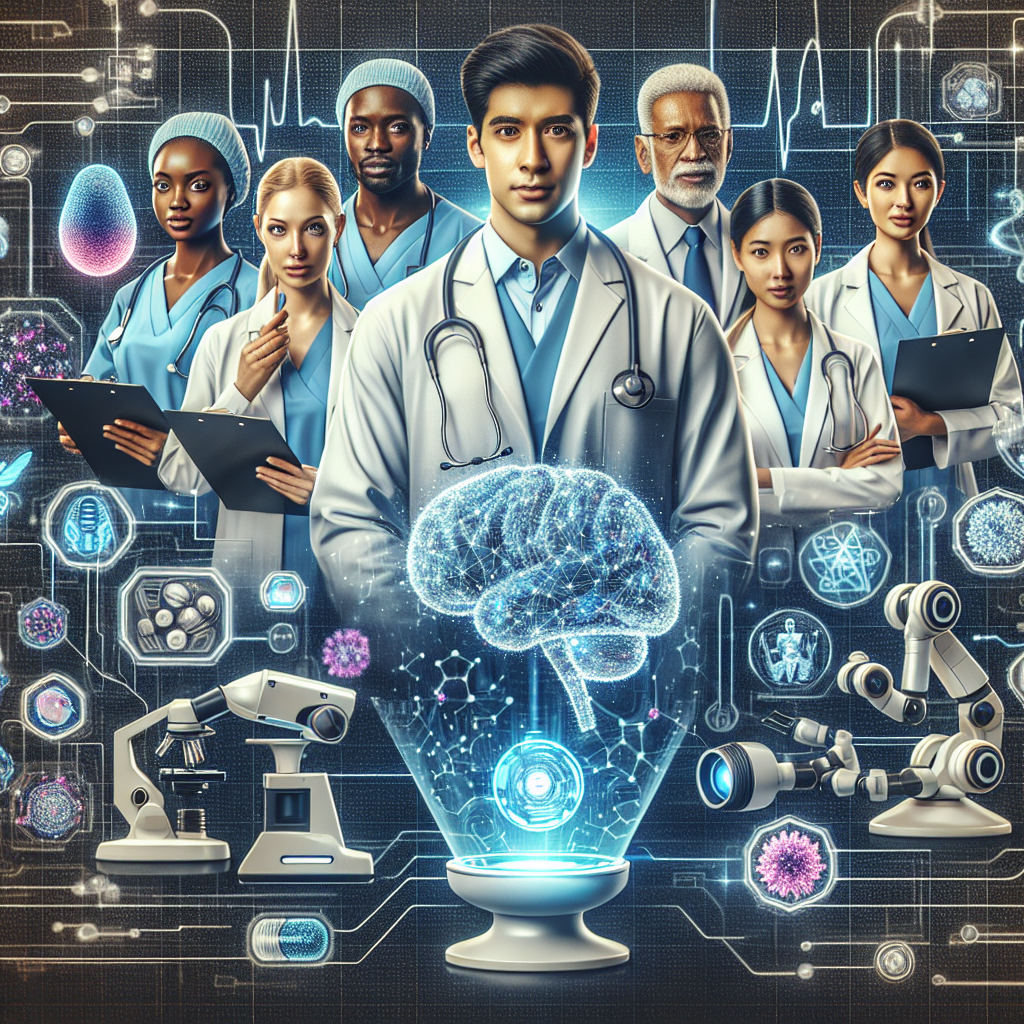Artificial General Intelligence (AGI) is a term that refers to the development of machines that possess the ability to understand, learn, and apply knowledge across a wide range of tasks. In recent years, AGI has been making significant strides in various industries, including healthcare. The use of AGI in healthcare is revolutionizing the medical field by improving patient care, diagnosis, treatment, and overall efficiency. In this article, we will explore how AGI is transforming the healthcare industry and the potential benefits it offers.
AGI in Healthcare: The Revolution Begins
The integration of AGI in healthcare has the potential to revolutionize the way medical professionals diagnose and treat patients. AGI systems can process vast amounts of data and information at a speed that far surpasses human capabilities. This enables healthcare providers to make more accurate and timely diagnoses, leading to better patient outcomes.
One of the key areas where AGI is making a significant impact is in medical imaging. AGI systems can analyze images from various modalities, such as X-rays, MRIs, and CT scans, with a level of accuracy that rivals or exceeds that of human radiologists. This allows for earlier detection of diseases and conditions, leading to faster and more effective treatment.
AGI is also being used to streamline administrative processes in healthcare facilities. By automating tasks such as scheduling appointments, processing insurance claims, and managing medical records, AGI systems can free up healthcare providers to focus on patient care. This not only improves efficiency but also reduces the risk of errors and delays in treatment.
Another area where AGI is making an impact is in personalized medicine. By analyzing genetic data and other patient-specific information, AGI systems can help healthcare providers tailor treatment plans to individual patients. This can lead to more effective treatments with fewer side effects, ultimately improving patient outcomes.
Overall, the integration of AGI in healthcare is helping to drive innovation and improve the quality of care for patients. As the technology continues to advance, we can expect to see even greater benefits in the years to come.
FAQs
Q: What is the difference between AGI and Artificial Intelligence (AI)?
A: Artificial General Intelligence (AGI) refers to machines that possess the ability to understand, learn, and apply knowledge across a wide range of tasks, similar to human intelligence. Artificial Intelligence (AI), on the other hand, is a broader term that encompasses various technologies and techniques that enable machines to perform specific tasks, such as image recognition or natural language processing.
Q: How is AGI being used in healthcare?
A: AGI is being used in healthcare to improve patient care, diagnosis, treatment, and overall efficiency. For example, AGI systems are being used to analyze medical images, streamline administrative processes, and personalize treatment plans for patients.
Q: What are the benefits of using AGI in healthcare?
A: The benefits of using AGI in healthcare include improved accuracy and efficiency in diagnosis and treatment, faster and more personalized care for patients, and reduced errors and delays in treatment.
Q: Are there any potential risks or challenges associated with using AGI in healthcare?
A: While AGI has the potential to revolutionize the healthcare industry, there are also potential risks and challenges to consider. These include issues related to data privacy and security, the need for regulatory oversight, and the potential for bias in machine learning algorithms.
Q: How can healthcare providers prepare for the integration of AGI?
A: Healthcare providers can prepare for the integration of AGI by investing in training and education for their staff, establishing clear policies and procedures for the use of AGI systems, and staying informed about the latest developments in the field.
In conclusion, AGI is revolutionizing the healthcare industry by improving patient care, diagnosis, treatment, and overall efficiency. The integration of AGI in healthcare has the potential to drive innovation and improve the quality of care for patients. As the technology continues to advance, we can expect to see even greater benefits in the years to come.

